How Priti Patel is using gay rights to push through ‘draconian’ Police Bill
The Tories are offering crumbs to some groups in order to ‘divide and conquer’, say campaigners
Nandini Archer
14 January 2022
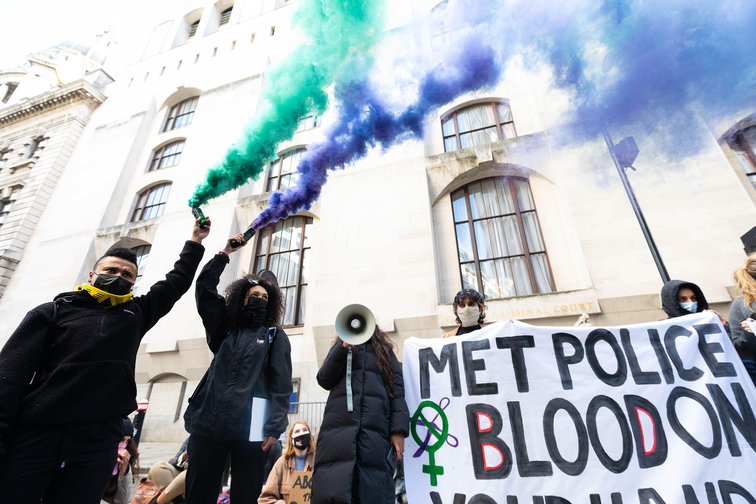
Priti Patel has been accused of using ‘divide and conquer tactics’ to pass her policing bill |
PA Images / Alamy Stock Photo
“I find it very offensive. It’s window dressing. It's purely symbolic.”
Tyler Hatwell, the founder of LGBT Travellers Pride, is describing Priti Patel’s plans to wipe historic convictions for homosexual activity from people’s criminal records.
“I’m not saying that wrongs shouldn’t be righted,” Hatwell adds, “but it feels like an absurd thing to be focusing on that rather than some of the more existential issues facing LGBTQ people today.”
As it happens, several of those existential issues stem from the same law that seeks to overturn historic convictions: Priti Patel’s fiercely opposed Police, Crime, Sentencing and Courts Bill, set to go through the final day of its so-called “report stage” in the House of Lords on Monday.
Hatwell calls this a deliberate “divide and conquer” tactic. “The government wants to split off LGBTQ people from any movement against the draconian police bill,” he says.
The bill has been met with fierce backlash since its inception in March 2020, which sparked #KilltheBill protests, riots, petitions and letters across the UK. It is a 300-page plan to increase surveillance and stop-and-search powers, put strict conditions on protests, and threaten Gypsy, Roma and Traveller (GRT) rights to roam. For people like Hatwell at the intersection of GRT and LGBTQ communities, as well as queer people of colour, the plans to erase historic convictions for homosexuality (which was legalised for some people in 1967) are worth little.
“The government is trying desperately to hide and rush through its many draconian proposals through the sheer size and breadth of the legislation,” Emmanuelle Andrews, policy and campaigns manager at the human rights organisation Liberty, tells openDemocracy.
Andrews believes the government has had countless opportunities to introduce historic pardons for homosexuality. “Throwing them in now alongside dangerous and oppressive new powers is a cynical ploy to confuse debate around the bill and to make it harder politically for MPs and peers to reject it wholesale,” they say.
“What good does wiping records of homosexual activity do?” Lady Phyll, executive director of UK Black Pride, asks. “These records should not exist in the first place, and homophobia and homophobic violence are on the rise in the UK.”
Lady Phyll has long been outspoken on the government’s failure to truly support the rights of queer people. She turned down an MBE in 2016, pointing out that LGBTQ people continue to be persecuted and killed because of laws put in place by British colonists.
She says LGBTQ rights cannot be talked about without talking about the impact of racism in the UK and says the country has a “piecemeal understanding” about what LGBTQ rights are.
“LGBT Black people and people of colour continue to be excluded from data gathering about what life is like in the UK for LGBT people,” she says. “The government’s Sewell Report discarded evidence put forward by UK Black Pride and other organisations which offered data about the impact of racism on LGBT people.”
The “window dressing” of the police bill is a long-standing government tactic, Lady Phyll explains, citing marriage equality as an example.
“Marriage equality is great,” she says – yet more fundamental issues get sidelined, such as the vulnerability of LGBTQ people in particular to homelessness, racism, food poverty, violence, incarceration and unequal access to healthcare.
“We deserve a government that looks at and treats its LGBTQ citizens as the diverse and deserving citizens it’s elected to serve,” she says.
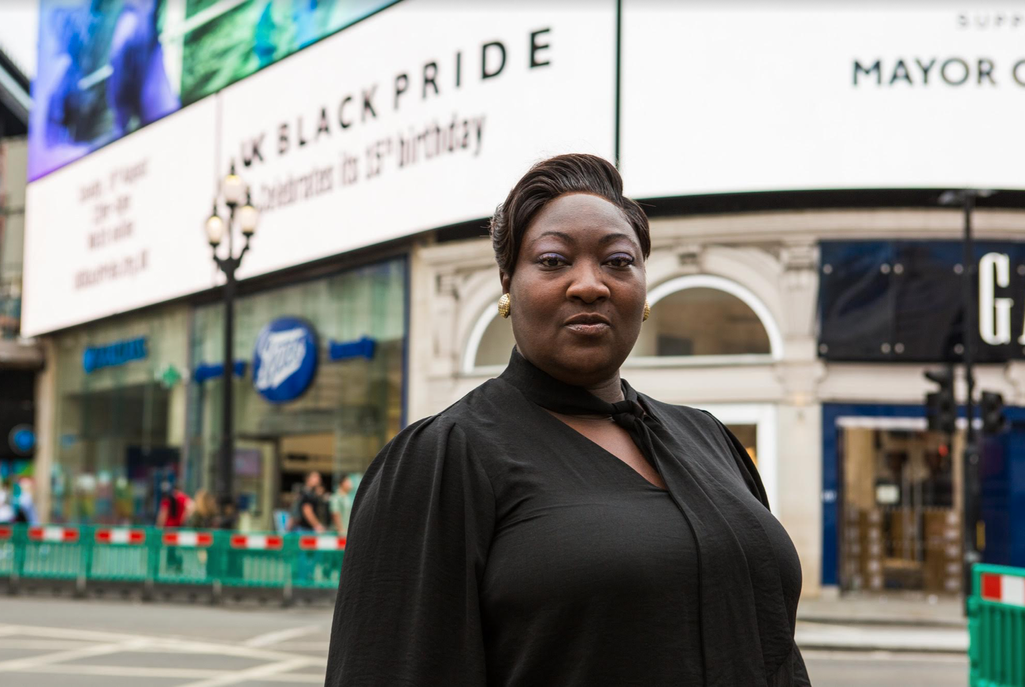
From domestic abuse to football
The government is also looking to buy support from other groups. One amendment to the police bill will treat domestic abuse and sexual offences “as seriously as knife crime” and extend the time limit for reporting domestic violence from six months to two years. Taking pictures of breastfeeding mothers in public will also be illegal.
Patel’s department also wants to impose a ban on online racist abusers from attending football matches for up to ten years.
The government announced last week that the bill would even crack down on ‘hare coursing’ – the niche practice of chasing hares with dogs.
But Lady Phyll tells me these are just examples of the government using progressive values to obscure the bill.
“What good does it do to ban a racist from a football match, if the police are empowered to beat, detain and harm Black people and people of colour without impunity? What good does [it] do when services that would uplift Black people and people of colour in this country, like mental health services, continue to be under- or defunded?”
On the issue of breastfeeding, she asks: “What of the Black women who die during childbirth in the UK at rates of four to one [compared] to white women? What of the physical violence women across the UK experience at the hands of the police?”
When the police cracked down violently on women gathering peacefully at a candlelit vigil for Sarah Everard, who was murdered by a police officer, activists started connecting police violence against women to the bill. This was the beginning of the #KilltheBill protests led by the feminist direct action group Sisters Uncut.
“Our feminism cannot be at the expense of other communities. They are chucking all this legislation into one bill precisely to make the oppressive, racist, unpopular parts palatable,” Sisters Uncut tweeted in response to the government’s plan to extend the time limit on domestic violence cases. “It's divide & rule, we can do better!”
And it’s this issue of unity that has run through the protests and movement. At one of the protests last year, a Sisters Uncut spokesperson said Patel was making the same mistake that Margaret Thatcher did with the poll tax, which was ultimately her downfall: “Don’t come for us all at once, you idiot.”
For Lady Phyll too, Patel’s attempt to appease footballers, breastfeeders, domestic violence survivors and some members of the LGBTQ community is simply not enough.
“None of these changes address the structures that allow and empower such disparities,” she said. “These changes do not address the structural racism, misogyny, sexism or homophobia that makes such racism, discrimination and violence the absolute norm in this country.”
The Tories are offering crumbs to some groups in order to ‘divide and conquer’, say campaigners
Nandini Archer
14 January 2022

Priti Patel has been accused of using ‘divide and conquer tactics’ to pass her policing bill |
PA Images / Alamy Stock Photo
“I find it very offensive. It’s window dressing. It's purely symbolic.”
Tyler Hatwell, the founder of LGBT Travellers Pride, is describing Priti Patel’s plans to wipe historic convictions for homosexual activity from people’s criminal records.
“I’m not saying that wrongs shouldn’t be righted,” Hatwell adds, “but it feels like an absurd thing to be focusing on that rather than some of the more existential issues facing LGBTQ people today.”
As it happens, several of those existential issues stem from the same law that seeks to overturn historic convictions: Priti Patel’s fiercely opposed Police, Crime, Sentencing and Courts Bill, set to go through the final day of its so-called “report stage” in the House of Lords on Monday.
Hatwell calls this a deliberate “divide and conquer” tactic. “The government wants to split off LGBTQ people from any movement against the draconian police bill,” he says.
The bill has been met with fierce backlash since its inception in March 2020, which sparked #KilltheBill protests, riots, petitions and letters across the UK. It is a 300-page plan to increase surveillance and stop-and-search powers, put strict conditions on protests, and threaten Gypsy, Roma and Traveller (GRT) rights to roam. For people like Hatwell at the intersection of GRT and LGBTQ communities, as well as queer people of colour, the plans to erase historic convictions for homosexuality (which was legalised for some people in 1967) are worth little.
“The government is trying desperately to hide and rush through its many draconian proposals through the sheer size and breadth of the legislation,” Emmanuelle Andrews, policy and campaigns manager at the human rights organisation Liberty, tells openDemocracy.
Andrews believes the government has had countless opportunities to introduce historic pardons for homosexuality. “Throwing them in now alongside dangerous and oppressive new powers is a cynical ploy to confuse debate around the bill and to make it harder politically for MPs and peers to reject it wholesale,” they say.
“What good does wiping records of homosexual activity do?” Lady Phyll, executive director of UK Black Pride, asks. “These records should not exist in the first place, and homophobia and homophobic violence are on the rise in the UK.”
Lady Phyll has long been outspoken on the government’s failure to truly support the rights of queer people. She turned down an MBE in 2016, pointing out that LGBTQ people continue to be persecuted and killed because of laws put in place by British colonists.
She says LGBTQ rights cannot be talked about without talking about the impact of racism in the UK and says the country has a “piecemeal understanding” about what LGBTQ rights are.
“LGBT Black people and people of colour continue to be excluded from data gathering about what life is like in the UK for LGBT people,” she says. “The government’s Sewell Report discarded evidence put forward by UK Black Pride and other organisations which offered data about the impact of racism on LGBT people.”
The “window dressing” of the police bill is a long-standing government tactic, Lady Phyll explains, citing marriage equality as an example.
“Marriage equality is great,” she says – yet more fundamental issues get sidelined, such as the vulnerability of LGBTQ people in particular to homelessness, racism, food poverty, violence, incarceration and unequal access to healthcare.
“We deserve a government that looks at and treats its LGBTQ citizens as the diverse and deserving citizens it’s elected to serve,” she says.

The government is ‘window dressing’ its ‘draconian’ policing bill, said Lady Phyll | Courtesy of Kaleidoscope Trust
Gypsy, Roma and Traveller rights
Critics say part four of the policing bill effectively criminalises the way of life of Gypsy, Roma and Traveller communities. The bill means that if neighbours of camps complain about any disturbances at all, police will be able to seize vehicles.
“It’s a curtain twitcher’s charter,” says Hatwell, “an extreme sledgehammer to crack a walnut.”
Hatwell says lawmakers are cynically using “antisocial behaviour” at a handful of camps as an excuse to push through this section of the bill. “But the trouble is, those things are already crimes,” he points out. “So all you're really doing is criminalising people who aren’t causing any difficulty.”
Hatwell describes himself as a showman. He puts on funfairs and tells openDemocracy he’s part of the Showman’s Guild – which was launched to combat a Victorian bill that tried to criminalise “movable gladdings”. He describes today’s police bill as similar but worse.
“The bill is basically one big land grab, where there’s no common space any more, and it’s all accounted for and everyone has to be in their place,” he explains.
Gypsy rights activist and journalist Jake Bowers calls the homosexuality pardons in the police bill a “fig leaf”, adding, “Patel herself is a fig leaf of diversity being used to drive through a deeply racist law.
“No one who believes in equality should fall for this. The Tories are deeply playing off different struggles in the hierarchy of inequalities against each other.”
LGBTQ rights and women’s rights have been secured by long and often bitterly contested campaigns of protest and non-violent direct action, he says, highlighting that part three of the bill will criminalise the modern equivalent of the suffragettes, such as the Extinction Rebellion and Black Lives Matter movements.
He says parts three and four of the bill must be thrown out: “These are linked struggles and no one is free until all are free.”
Gypsy, Roma and Traveller rights
Critics say part four of the policing bill effectively criminalises the way of life of Gypsy, Roma and Traveller communities. The bill means that if neighbours of camps complain about any disturbances at all, police will be able to seize vehicles.
“It’s a curtain twitcher’s charter,” says Hatwell, “an extreme sledgehammer to crack a walnut.”
Hatwell says lawmakers are cynically using “antisocial behaviour” at a handful of camps as an excuse to push through this section of the bill. “But the trouble is, those things are already crimes,” he points out. “So all you're really doing is criminalising people who aren’t causing any difficulty.”
Hatwell describes himself as a showman. He puts on funfairs and tells openDemocracy he’s part of the Showman’s Guild – which was launched to combat a Victorian bill that tried to criminalise “movable gladdings”. He describes today’s police bill as similar but worse.
“The bill is basically one big land grab, where there’s no common space any more, and it’s all accounted for and everyone has to be in their place,” he explains.
Gypsy rights activist and journalist Jake Bowers calls the homosexuality pardons in the police bill a “fig leaf”, adding, “Patel herself is a fig leaf of diversity being used to drive through a deeply racist law.
“No one who believes in equality should fall for this. The Tories are deeply playing off different struggles in the hierarchy of inequalities against each other.”
LGBTQ rights and women’s rights have been secured by long and often bitterly contested campaigns of protest and non-violent direct action, he says, highlighting that part three of the bill will criminalise the modern equivalent of the suffragettes, such as the Extinction Rebellion and Black Lives Matter movements.
He says parts three and four of the bill must be thrown out: “These are linked struggles and no one is free until all are free.”
From domestic abuse to football
The government is also looking to buy support from other groups. One amendment to the police bill will treat domestic abuse and sexual offences “as seriously as knife crime” and extend the time limit for reporting domestic violence from six months to two years. Taking pictures of breastfeeding mothers in public will also be illegal.
Patel’s department also wants to impose a ban on online racist abusers from attending football matches for up to ten years.
The government announced last week that the bill would even crack down on ‘hare coursing’ – the niche practice of chasing hares with dogs.
But Lady Phyll tells me these are just examples of the government using progressive values to obscure the bill.
“What good does it do to ban a racist from a football match, if the police are empowered to beat, detain and harm Black people and people of colour without impunity? What good does [it] do when services that would uplift Black people and people of colour in this country, like mental health services, continue to be under- or defunded?”
On the issue of breastfeeding, she asks: “What of the Black women who die during childbirth in the UK at rates of four to one [compared] to white women? What of the physical violence women across the UK experience at the hands of the police?”
When the police cracked down violently on women gathering peacefully at a candlelit vigil for Sarah Everard, who was murdered by a police officer, activists started connecting police violence against women to the bill. This was the beginning of the #KilltheBill protests led by the feminist direct action group Sisters Uncut.
“Our feminism cannot be at the expense of other communities. They are chucking all this legislation into one bill precisely to make the oppressive, racist, unpopular parts palatable,” Sisters Uncut tweeted in response to the government’s plan to extend the time limit on domestic violence cases. “It's divide & rule, we can do better!”
And it’s this issue of unity that has run through the protests and movement. At one of the protests last year, a Sisters Uncut spokesperson said Patel was making the same mistake that Margaret Thatcher did with the poll tax, which was ultimately her downfall: “Don’t come for us all at once, you idiot.”
For Lady Phyll too, Patel’s attempt to appease footballers, breastfeeders, domestic violence survivors and some members of the LGBTQ community is simply not enough.
“None of these changes address the structures that allow and empower such disparities,” she said. “These changes do not address the structural racism, misogyny, sexism or homophobia that makes such racism, discrimination and violence the absolute norm in this country.”



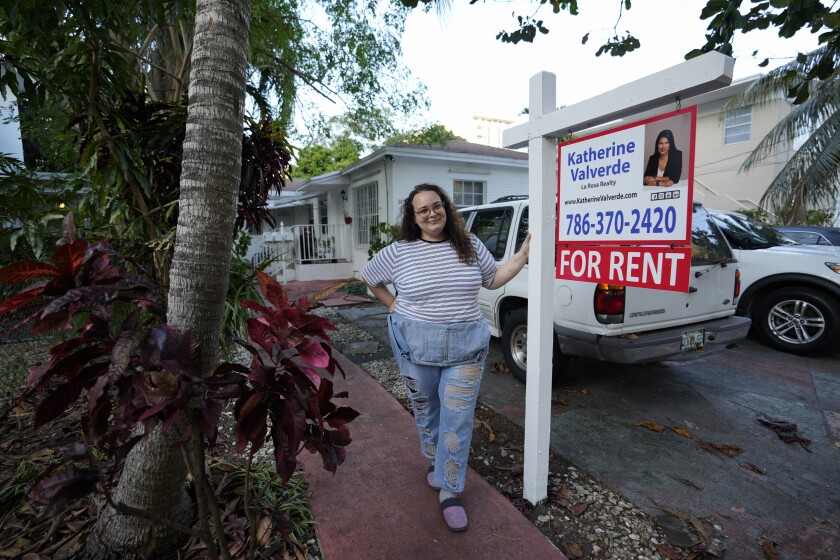



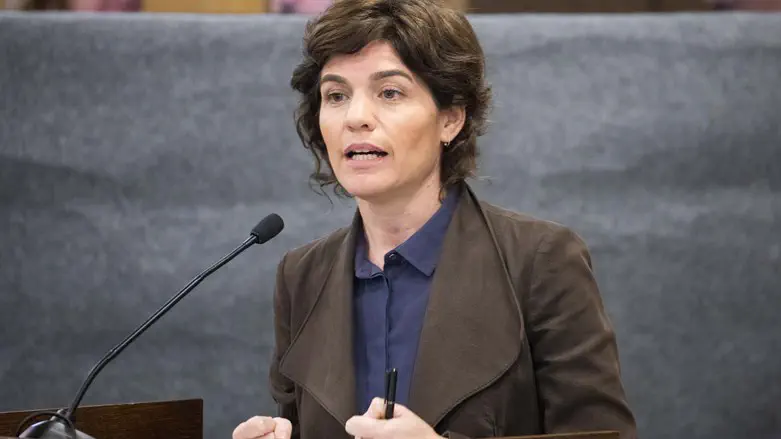 Tamar ZandbergNoam Revkin Fenton/Flash90
Tamar ZandbergNoam Revkin Fenton/Flash90
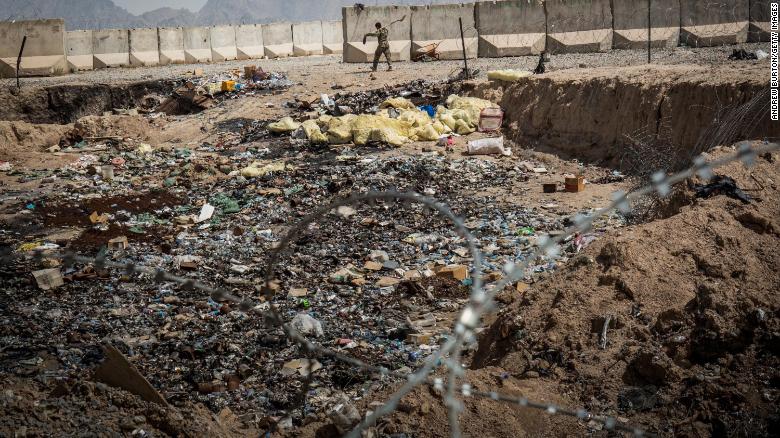

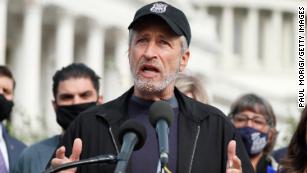
/cloudfront-ap-southeast-2.images.arcpublishing.com/nzme/N4QMOXEVWECIL637DMGQPF6LXA.jpg)
/cloudfront-ap-southeast-2.images.arcpublishing.com/nzme/OYAT2ZZB3DWBPVEDBTX57FEMPQ.jpg)
/cloudfront-ap-southeast-2.images.arcpublishing.com/nzme/ACPYXG4IYZS44CIOZRXZ35AVSQ.jpg)
/cloudfront-ap-southeast-2.images.arcpublishing.com/nzme/NZNOBDBUYVPZNNJG4FIT33BY6I.jpg)
/cloudfront-ap-southeast-2.images.arcpublishing.com/nzme/DKMC66ORBR24AXTHKJHWDCIXJM.jpg)
/cloudfront-ap-southeast-2.images.arcpublishing.com/nzme/K5S7EHTDWUCFOPIBNHADLX5AEI.jpg)
